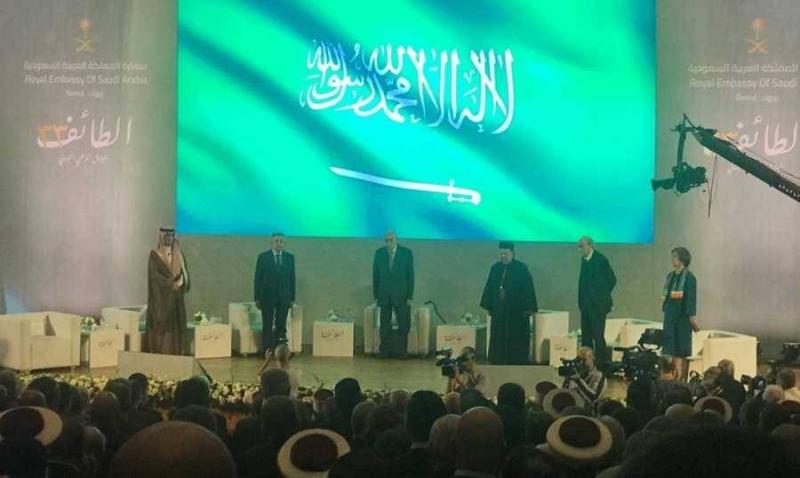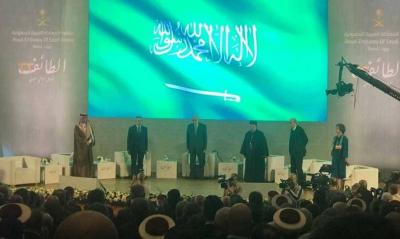The national conference marking the 33rd anniversary of the signing of the Taif Agreement commenced, called by the Saudi ambassador to Lebanon, Walid Bukhari, at UNESCO. Bukhari emphasized that "the Taif Agreement conference reflects Saudi Arabia and its leadership's interest in preserving Lebanon's security, unity, stability, and national pact." He stated, "We count on the wisdom of Lebanese leaders and the aspirations of a people seeking to live in stability. We urgently need to embody the formula of coexistence and preserve the identity and Arabism of Lebanon." He concluded, "France has assured us that there will be no intention or proposal to change the Taif Agreement."
Former Prime Minister Fouad Siniora stressed from UNESCO that "the lessons learned from the experience indicate that Lebanon is based on the strength of sustainable balance, which achieves stability." He said, "There is no sectarian or factional solution; there is only one solution—Lebanon exists for all or does not exist at all." He concluded, "Good intentions are the principle that any initiative or solution should start with, and most importantly today is to reach a president who believes in the Taif Agreement, cares for its return, and seeks to solidify it while attending to its correct implementation."
For his part, Walid Jumblatt, head of the Progressive Socialist Party, emphasized from UNESCO that "the most important thing today is the election of a president for the republic." He said, "The big battle now is not regarding the clear constitutional and political presidential powers, but rather the problem of electing a president and subsequently forming a credible government that initiates the necessary reforms to begin economic and financial rescue." He added, "The Taif Agreement is extremely essential as it laid the groundwork for ending the war that Lebanon witnessed for 15 years. Before discussing amendments to the Taif, we must apply it first to achieve the elimination of political sectarianism. Who said that as Kamel Jumblatt's heir, I oppose the elimination of political sectarianism?" He concluded, "Among the multiple provisions of the Taif, there is a clause that calls for the establishment of a Senate, which has not yet been implemented. This demand was present in the memorandum of the High Council of the Druze community to former President Amin Gemayel, but we encountered the Syrian regime's outright refusal because the regime does not want to grant the Druze in Lebanon an additional privilege that could impact the Druze in Syria."
Bishop Paul Matar, from UNESCO, considered that "Christians and Muslims are one nation in the Taif Agreement, and we in Lebanon are brothers in nationalism, Arabism, and humanity, so we hope that Lebanese will place their disagreements under the umbrella of brotherhood, not above it." He saw that "returning to the Taif is an opportunity for Lebanon, as the political system is subject to change within a dialogue that should not cease," emphasizing that "dialogue is a duty that should be undertaken with love and brotherhood."
UN Special Coordinator for Lebanon Joanna Frontera called for "mobilizing efforts to implement the historic Taif Agreement in a manner that ensures Lebanon's stability." She indicated that "the agreement established a new political system that meets the aspirations of the Lebanese by adopting and implementing reforms and fostering national belonging."




